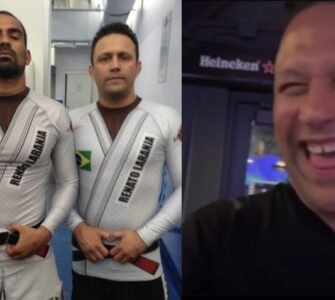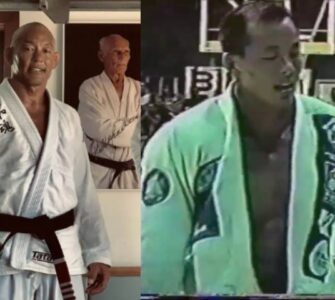Travis Stevens is a man of many gifts but perhaps the one to admire the most is his work ethic. The Silver Olympic Judo medalist has put in 6 hour work outs for a number of years to get to a place where he was able to dominate with his newaza. To boot, he is also a John Danaher bjj black belt.
“The highest level athletes tend to work hard all the time regardless of what they are doing. But a majority of athletes ONLY work hard when they want to work hard or if someone is watching them. If you take the hardworking athlete (we’ll call him Joe) and the part-time hardworking athlete (we’ll call him Steve) and examine their overall output during each practice, day-to-day it may be very close. But if you examine their output over time, it’s drastically different. Now I am not taking into account injuries, etc. But the athletes that make it to the Olympic and World Level are the ones that persevere and look for solutions to improve not just reasons why they can’t. Everyday athletes crumble and quit on themselves far too many times or set themselves up for failure. ” Stevens writes in his latest blog.
Olympic Silver Medalist Travis Stevens’s Training Week: 6 Sessions/Day!
Stevens further adds:
Here is something to think about if you are ever wondering if you are holding back….
-
Do you have a good sweat 15 minutes into a training session?
-
How many times did you conversate during a training session? (Stay focused and keep your mouth shut. Your instructors will correct you if they see something they don’t like.)
-
Are you completely exhausted after training? Or did you leave room to do a few extra rounds or drilling sessions?
-
Most people hold back in fear that they will get tired and it will cause them to lose or get embarrassed. That fear of being tired is the biggest downfall athletes have when training. That fear is greater than their desire to win, as crazy as it sounds, it’s true.
Stevens concludes:
I have failed a lot and I’m okay with that. We all have to start somewhere but that starting point doesn’t determine how far we can make it. I know and I believe that the sooner I start, the sooner I’ll be where I’m trying to go, regardless of how bumpy or rocky the road is. If I keep putting one foot in front of the other in a positive manner, I can achieve what I have set out to do.

















